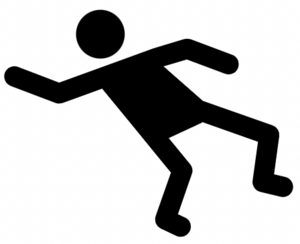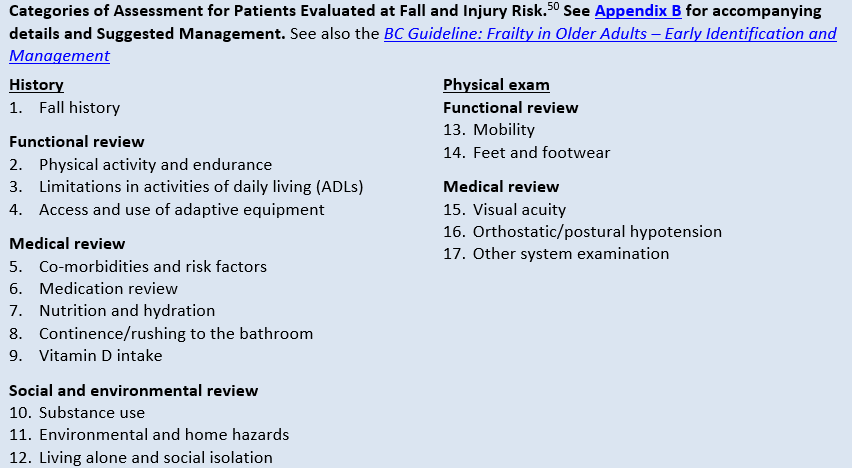The Of Dementia Fall Risk
The Of Dementia Fall Risk
Blog Article
Not known Facts About Dementia Fall Risk
Table of ContentsThe Basic Principles Of Dementia Fall Risk The Buzz on Dementia Fall RiskThe Facts About Dementia Fall Risk Uncovered5 Easy Facts About Dementia Fall Risk Described
A loss risk assessment checks to see just how most likely it is that you will fall. It is mainly done for older grownups. The evaluation typically consists of: This includes a collection of questions concerning your general health and wellness and if you've had previous falls or troubles with equilibrium, standing, and/or strolling. These tools examine your stamina, balance, and stride (the method you stroll).Interventions are referrals that may decrease your danger of dropping. STEADI includes 3 actions: you for your threat of falling for your danger variables that can be improved to try to avoid drops (for instance, balance troubles, impaired vision) to lower your threat of dropping by making use of reliable strategies (for example, offering education and learning and sources), you may be asked a number of questions consisting of: Have you fallen in the past year? Are you fretted about falling?
You'll rest down again. Your provider will certainly examine how long it takes you to do this. If it takes you 12 seconds or even more, it may indicate you are at greater threat for a loss. This examination checks stamina and balance. You'll sit in a chair with your arms crossed over your chest.
Move one foot halfway forward, so the instep is touching the big toe of your other foot. Move one foot fully in front of the various other, so the toes are touching the heel of your various other foot.
Dementia Fall Risk Things To Know Before You Buy
Many falls take place as an outcome of several contributing factors; for that reason, managing the risk of dropping begins with recognizing the aspects that contribute to drop danger - Dementia Fall Risk. Some of one of the most pertinent risk factors consist of: History of previous fallsChronic clinical conditionsAcute illnessImpaired gait and balance, reduced extremity weaknessCognitive impairmentChanges in visionCertain high-risk medications and polypharmacyEnvironmental aspects can also boost the threat for drops, including: Poor lightingUneven or damaged flooringWet or unsafe floorsMissing or damaged hand rails and grab barsDamaged or poorly fitted tools, such as beds, wheelchairs, or walkersImproper use assistive devicesInadequate supervision of the individuals living in the NF, consisting of those that display hostile behaviorsA successful autumn threat management program needs a comprehensive professional assessment, with input from all members of the interdisciplinary team

The care strategy should likewise include interventions that are system-based, such as those that promote a risk-free environment (proper lighting, handrails, order bars, etc). The performance of the interventions need to be examined regularly, and the care plan changed as required to reflect adjustments in the fall danger analysis. Carrying out a loss danger management system using evidence-based finest method can reduce the occurrence of falls in the NF, while restricting the capacity for fall-related injuries.
Get This Report about Dementia Fall Risk
The AGS/BGS standard suggests screening all adults matured 65 years and older for loss risk annually. This screening contains asking people whether they have dropped 2 or even more times in the previous year or sought medical interest for an autumn, or, if they have actually not dropped, whether they really feel unstable when strolling.
People that have actually dropped once without injury ought to have their balance and gait evaluated; those with gait or balance abnormalities must obtain additional assessment. A history of 1 fall without injury and without gait or equilibrium problems does not warrant additional analysis past ongoing yearly fall risk screening. Dementia Fall Risk. A loss danger evaluation is required as component of the Welcome to Medicare exam

Some Known Details About Dementia Fall Risk
Documenting a falls history is one of the high quality signs for fall avoidance and management. A vital component of danger analysis is a medicine review. Several courses of try this website medicines increase loss risk (Table 2). Psychoactive medicines in particular are independent predictors of drops. These Visit Your URL drugs often tend to be sedating, modify the sensorium, and harm balance and stride.
Postural hypotension can typically be minimized by lowering the dose of blood pressurelowering medications and/or quiting medicines that have orthostatic hypotension as an adverse effects. Use above-the-knee assistance hose pipe and sleeping with the head of the bed elevated may additionally minimize postural reductions in high blood pressure. The preferred aspects of a fall-focused checkup are received Box 1.

A yank time greater than or equivalent to 12 secs recommends high autumn threat. The 30-Second Chair Stand test examines reduced extremity toughness and equilibrium. Being not able to stand up from a chair of knee height without making use go to this site of one's arms shows increased autumn threat. The 4-Stage Equilibrium examination analyzes fixed balance by having the individual stand in 4 placements, each gradually much more challenging.
Report this page